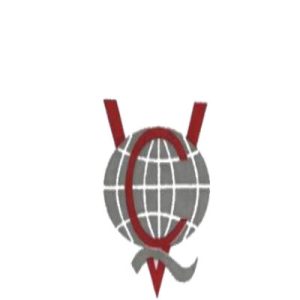
QVC Exports IPO
ClosedAlready have an account? Apply now
QVC Exports IPO details
Schedule of QVC Exports
| Issue open date | 21 Aug 2024 |
| Issue close date | 23 Aug 2024 |
| UPI mandate deadline | 23 Aug 2024 (5 PM) |
| Allotment finalization | 26 Aug 2024 |
| Refund initiation | 27 Aug 2024 |
| Share credit | 27 Aug 2024 |
| Listing date | 28 Aug 2024 |
| Mandate end date | 07 Sep 2024 |
| Lock-in end date for anchor investors (50%) | 26 Sep 2024 |
| Lock-in end date for anchor investors (remaining) | 26 Nov 2024 |
Note: The schedule is tentative. The anchor lock-in period ends 30 days after the actual allotment date for 50% of the shares and 90 days after for the remaining portion. The allotment status can be checked on the registrar's website and the exchange website.
About QVC Exports
Incorporated in 2005, QVC Exports is engaged in the business of dealing in ferroalloys, including but not limited to high-carbon silico manganese, low-carbon silico manganese, high-carbon ferromanganese, high-carbon ferrochrome, and ferrosilicon. The company has created a unique inward and outward model, wherein it procures raw materials for a manufacturer and further sells the same manufacturer’s finished products, thereby creating a wide and reliable customer and supplier base and the ability to serve manufacturers at different points of the steel supply chain.
As of March 31, 2024, 82.95% of the company’s revenue was earned from export operations to various countries like Taiwan, Japan, Bangladesh, Vietnam, Thailand, Turkey, Afghanistan, Korea, Italy, Ukraine, the UK, Belgium, Oman, etc. The company imports manganese ore, and manganese ore lumps from reputed miners and manufacturers in Hong Kong and France.
Financials of QVC Exports
Issue size
| Funds Raised in the IPO | Amount |
| Overall | ₹24.07 crores |
| Fresh Issue | ₹17.63 crores |
| Offer for sale | ₹6.44 crores |
Utilisation of proceeds
| Purpose | INR crores (%) |
| Debt reduction | 1.09 (7.35%) |
| Working capital requirements | 9 (60.69%) |
| General corporate purposes | 3.71 (25%) |
| Others | 1.03 (6.96%) |
Strengths
- Reduced warehousing, storage, and overhead expenses: The Company supplies its products directly from its supplier’s premises to its customers to save transportation costs and remain cost-competitive in the market, and increase its revenue margins.
- Wide range of products: The company provides a broad range of products to its customers increasing the scope of customers and ability to cater to a diversified clientele base.
- Quality assurance: The company’s products and processes undergo regular quality checks to ensure zero defects. It conducts thorough testing and analysis of finished products using advanced laboratory techniques to verify composition, purity, and other quality parameters by deploying independent inspection agencies such as Bureau Veritas, IRA, SGS, etc at the loading port to deliver the quality products to the buyers.
Risks
- Lack of long-term contracts: The company generally does business with its customers on a purchase-order basis and does not enter into long-term contracts with them. Any inability to maintain relationships with clients could adversely impact business, prospects, results of operations, and financial condition.
- Fluctuating product prices: Some of the company’s core products have been subject to price fluctuations resulting from government policies, shifts in supply and demand, and other factors beyond its control. As a result, any fluctuation in prices could have a material adverse effect on the company’s results of operations.
- Reliance on the steel industry: The Company is reliant on the demand from the steel industry for a significant portion of its revenue. Any downturn in the steel industry or an inability to increase or effectively manage sales could adversely impact the company’s business and results of operations.